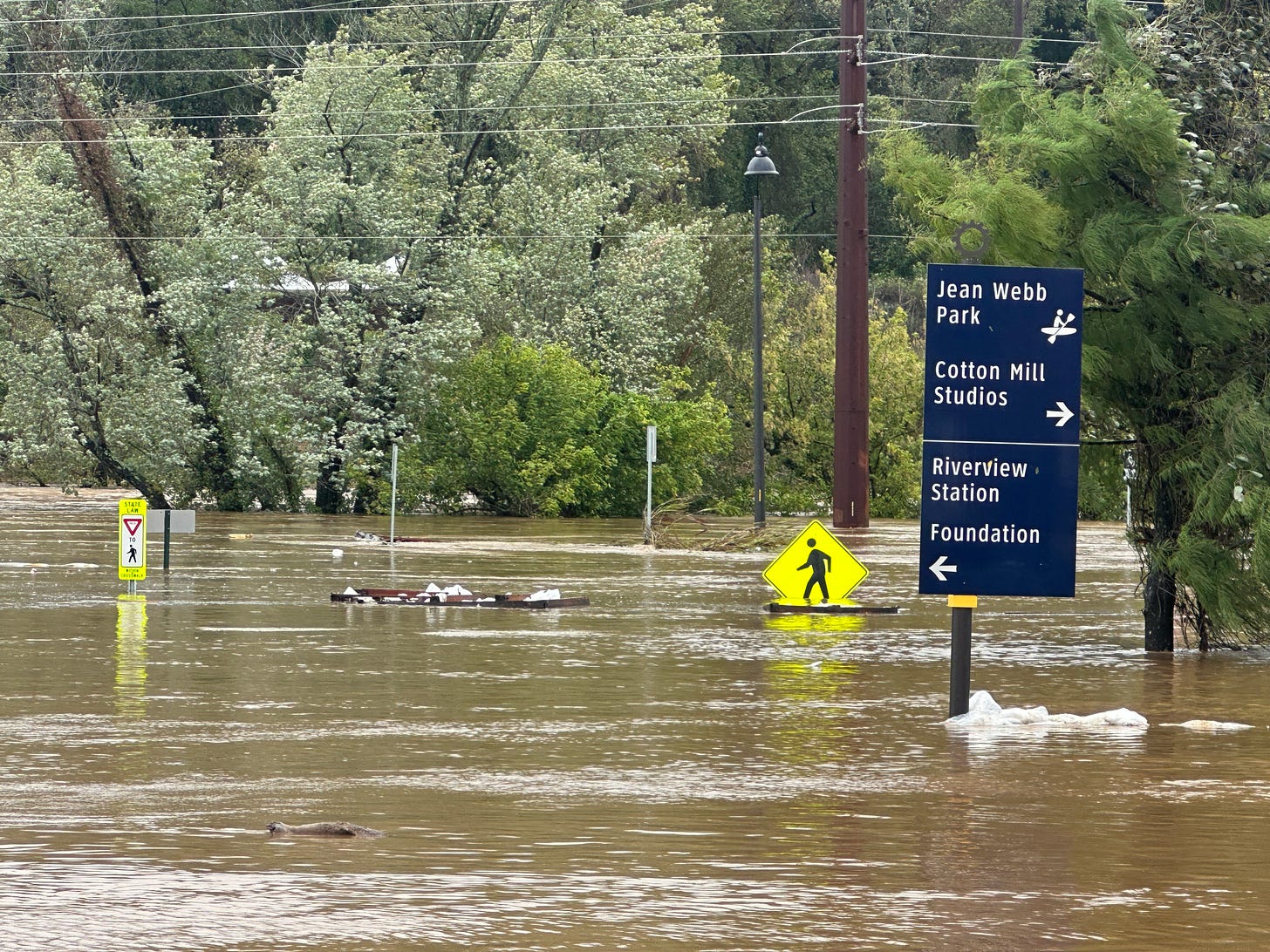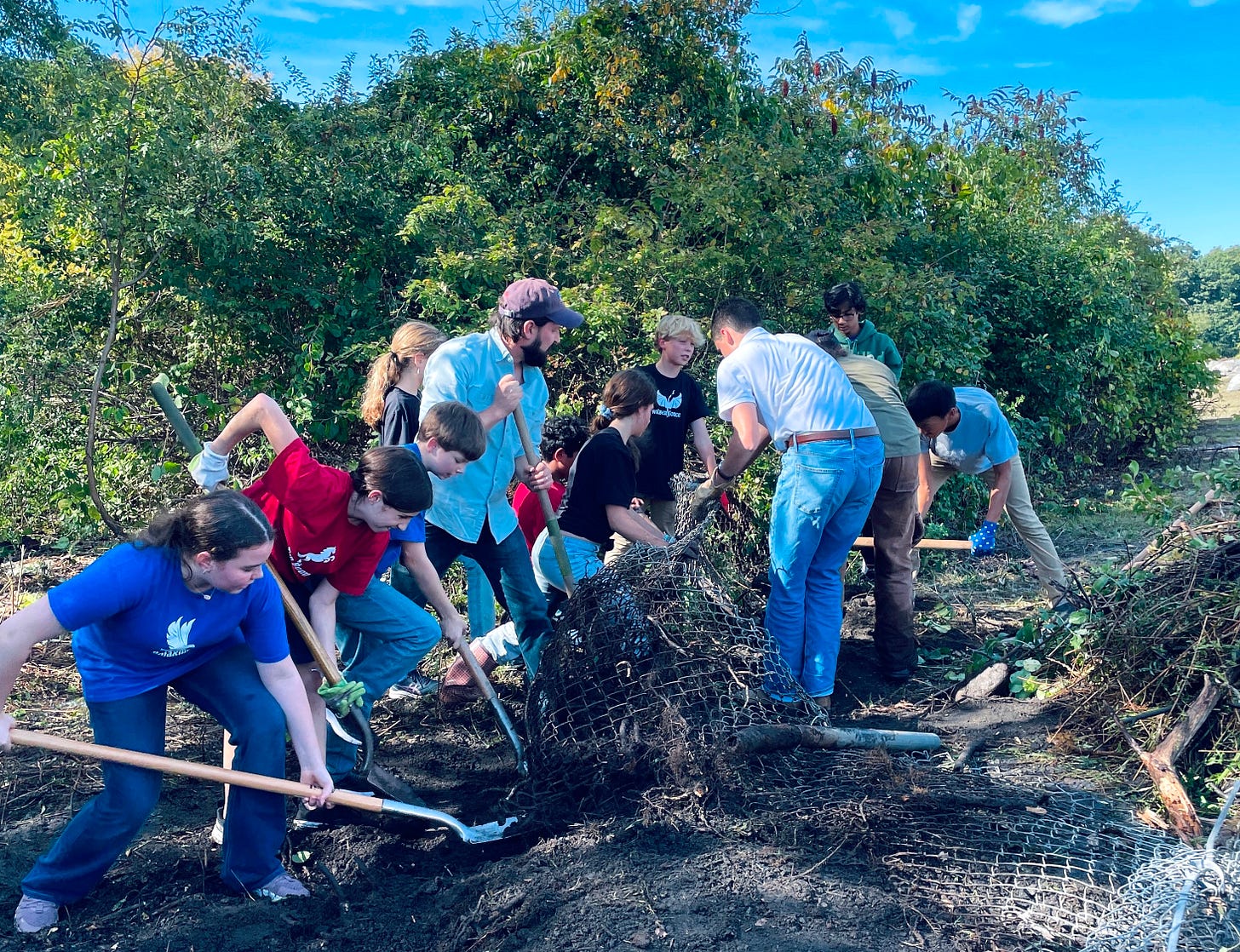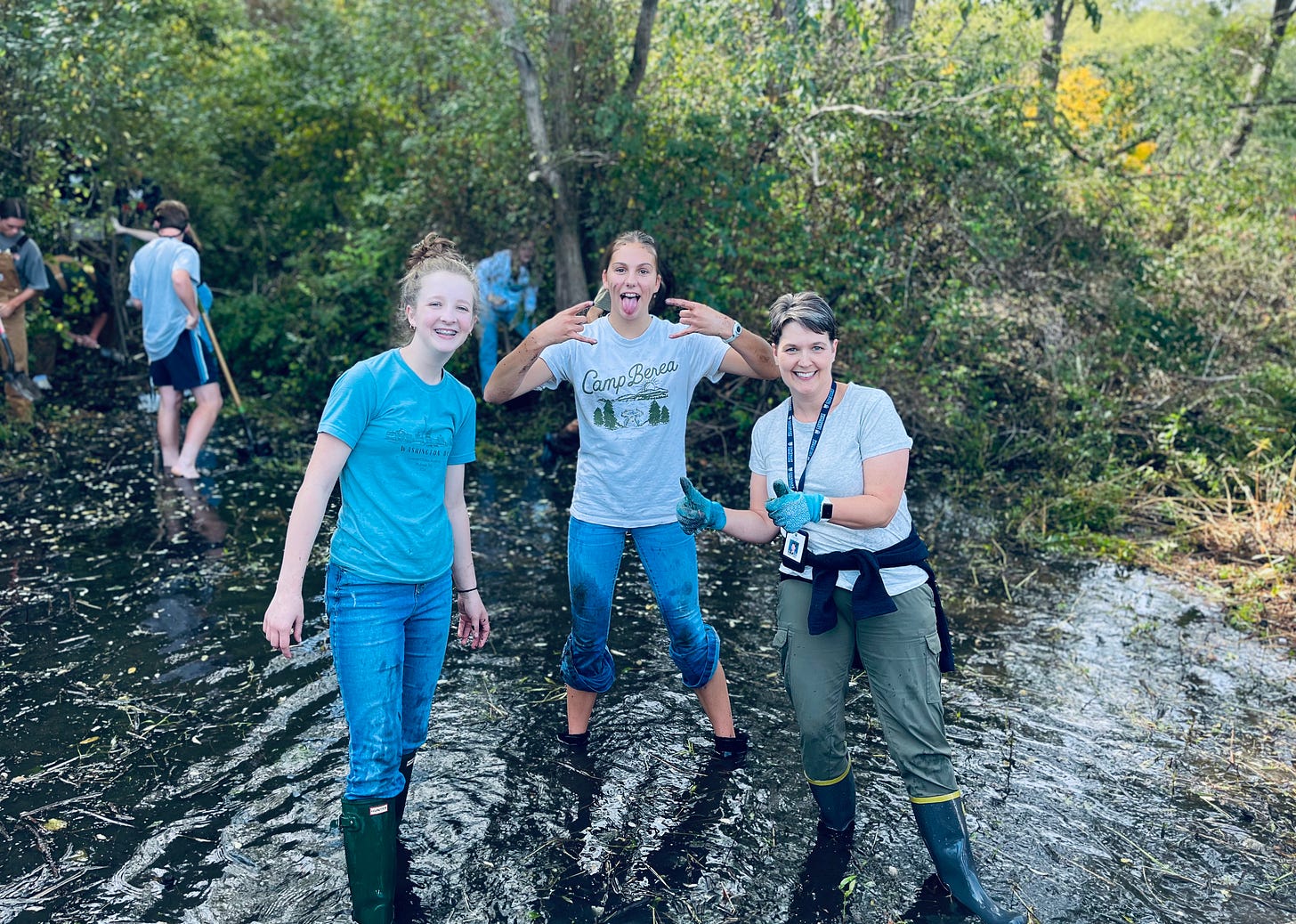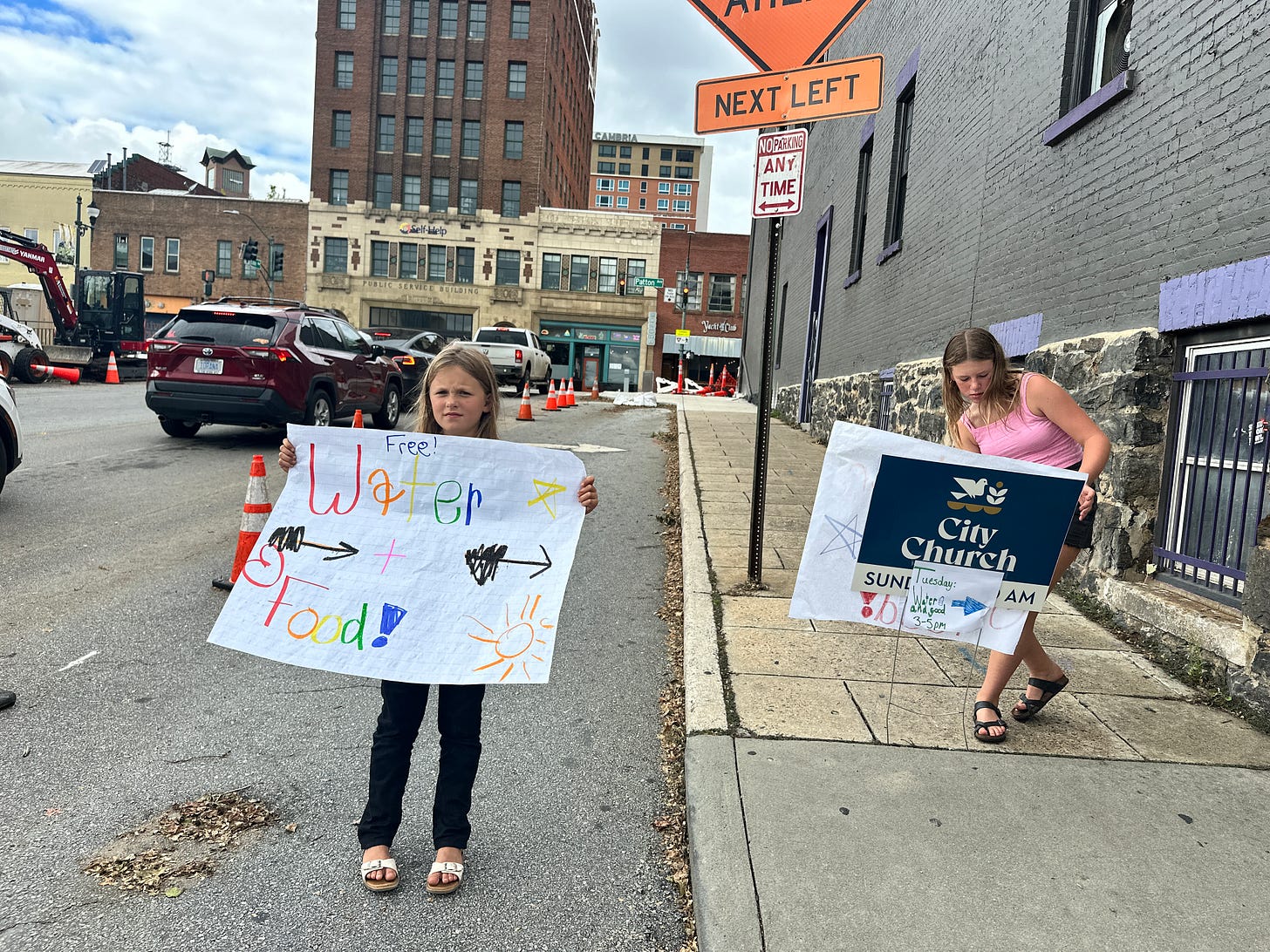Among the Waters
Creation, uncreation, and grace
Water is the meeting place of life and death. In the Genesis account of the beginning of the world, the Spirit of God “hovers above” the waters, which signify the elemental chaos of uncreation. On the other hand, one of the Hebrew words for Heaven literally translates to “water is there;” connoting a place of abundant life, where all needs are quenched. Jesus walks on water to signal his mastery over creation to his disciples; Moses strikes the rock in the desert, which gushes water—like the wounded side of Christ—to satisfy the needs of a thirsty and disconsolate people. In the epic poem Beowulf, demons emerge from the water and must be killed there. In The Odyssey, water is simultaneously the domain of Odysseus’ celestial enemy, Poseidon, and the only road that can bring him home. It is, like Odysseus himself, an element “of twists and turns,” as deadly as it is necessary, as beautiful as it is treacherous.
So went my thoughts last Friday when the Classical Roots students and I, along with quite a few brave souls from the general student populace, waded into the mud and flotsam to break ground on the program’s latest project: a wildlife pond. For years, a depression near our west parking lot has filled with water during rainier seasons, only to drain away when the weather turned dry. Sensing the potential, CCA’s biology teacher and I hatched a plan to make the water stay—a plan which will ultimately involve a whole lot of pond liner, decorative stones, native aquatic plants, and even a little hardscaping but, before any of that, was going to have to involve a lot of dirty work.
The students rose to it with laughter and sweaty delight, literally jumping in ankle-deep to clear out the loosestrife, elderberry, and invasive grasses clogging the space and, most impressively of all, ripping a half-buried chainlink fence out of the ground by sheer force of will. It had been lying there, slowly enveloped by soil and roots, since a snow plow pushed it over in 2015. I’ve argued before that one of the chief cravings of this generation is for embodied experiences: moments and activities that affirm and confirm their bodily selves, that allow them to alter the landscape and be altered by it. That craving was in clear evidence as the students sacrificed their time, their effort and, in many cases, their clothes for the sake of a little space that would ultimately be more important to local frogs than to themselves. It was impossible not to be encouraged.
What I didn’t know was that, at the same moment, the swollen remnants of Hurricane Helene were dumping around thirty trillion gallons of rain on my hometown of Asheville, North Carolina in a single day, reducing whole sections of it to ruins with catastrophic flooding and killing dozens—perhaps even hundreds—of people. The French Broad River, normally around forty feet from shore to shore, widened to a devouring mile. My parents and four of my sisters, along with their families, were without power, water, or the ability to communicate. Landslides had blocked all major highways, fires were burning in unreachable neighborhoods, and houses were floating away in a muddy, annihilating sluice. All of my relatives were—and still are—blessedly safe, but the water quite literally swept the city away. It’s a situation that continues to unfold in nightmarish scattershot details, the ruination of almost every place that has been significant to my family for generations.

And yet, miraculously, I was able to contact them all within the next twelve hours. Phone calls could get in, but not out or between, so my wife and I became the communications outpost for the family, passing news along invisible lines, coordinating efforts, triangulating locations. By Sunday morning, when we shuffled blearily into the outdoor service at our church under the crystal autumn light, it was hard not to feel like the universe was wrong; that no part of the world had any right to peace and stability when any other part of it was lying in sopping ruin. How strange, then, that so much of the liturgy and so many of the hymns that day happened to involve water imagery. I had never noticed, for instance, the prominence of water and its association with joy in these verses of “Joyful, Joyful, We Adore Thee:”
Always giving and forgiving, Ever blessing, ever blest,
Well-spring of the joy of living, Ocean-depth of happy rest!
Loving Father, Christ our Brother, Let Your light upon us shine;
Teach us how to love each other, Lift us to the joy divine.Mortals, join the mighty chorus, Which the morning stars began;
God's own love is reigning o’er us, Joining people hand in hand.
Ever singing, march we onward, Victors in the midst of strife;
Joyful music leads us sunward In the triumph song of life.
Singing these words brought me back to the faces of the students and the evolving depths of our fledgling pond, to the giving and forgiving symbolism of water, with its power to refresh or destroy. The message of the words was simple: the world is not a closed system; there are more powers at work on earth and in heaven than we can see. It gave me the kind of bitter hope Thomas Merton writes about in his letters to Czeslaw Miloz: “Hope in spite of the sickness that fills us. Hope married to a firm refusal to accept any palliatives or anything that cheats hope by pretending to relieve apparent despair…this semi-despair is the normal form taken by hope in a time like ours. ” As cell towers are restored and more news emerges from my trapped and ruined hometown, there are terrible images hitting the internet. But there are also stories of heroism, homecoming, and survival. I’m thankful for those, for the neighbors and saints working hand in hand right now to unbury the city and do each other good in the mountains; for grace among the waters.
If you’d like to donate to immediate relief work for the Asheville area, you can find a list of good organizations by clicking the button below:




